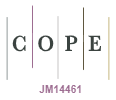Liberating university extension as a place of resistance
DOI:
https://doi.org/10.5585/eccos.n61.15785Keywords:
dialogue, liberating education, universitary extension, resistance.Abstract
After more than 50 years of the publication of Pedagogy of the Oppressed, the book is current again due to the conservative wave that is taking place in many parts of the world, including Brazil. Paulo Freire is recognized as an important denunciator of the social role of education, the maintenance of an unfair society and as the precursor of an education directed to the transformation of this social structure. The university extension is an educative action that, in the same way, can cause sustaining or transforming effects towards society. The author’s book Extension or Communication?, even though it was written to reflect on the rural extension practice, became a reference to think about the academical extension practice. The present article, of theoretical character, problematizes the pitfalls of a “dominating extension” – even if the intentions are not these – and brings elements so that we can be vigilant in search of a “liberating extension”, popular extension, as a place of resistance in conservative times. The cultural intrusion, the decrease of others as “needy” and the non-recognition of others as possessors of knowledge set the tone for university extensions, often alienated by their executors. It is necessary to be vigilant against these pitfalls and do not lose track of a “communicative” extension, which recognizes others as subjects and possessors of a valid knowlegde. This extension implies another way of teaching, researching and managing the university, all permeated by the conscientious dialogue, which is still a great educational instrument of resistance against oppression.
Downloads
References
ARAÚJO-OLIVERA, Sonia Stella. Exterioridade: o outro como critério. In: OLIVEIRA, Maria Waldenez de e SOUSA, Fabiana R. de (Orgs.). Processos Educativos em Práticas Sociais: pesquisas em educação. São Carlos/SP: EdUFSCar, 2014. P.47-112.
BORGES, Valdir. A reconstrução de uma ética pedagógica libertadora à luz de Paulo Freire. Curitiba: Editora CRV, 2013.
CAPONI, Sandra. Da compaixão à solidariedade: uma genealogia na assistência médica. Rio de Janeiro: FIOCRUZ, 2000.
CRUZ, Pedro José S. C. Extensão Popular: a reinvenção da universidade. In: VASCONCELOS, Eymard Mourão e CRUZ, Pedro Jpsé S. C. Educação Popular na formação universitária: reflexões com base em uma experiência. São Pulo: Hucitec; João Pessoa: Editora Universitária da UFPB, 2011. P. 40-61.
DUSSEL, Enrique. Filosofia da Libertação. São Paulo: Loyola; Piracicaba/SP: UNIMEP, 1977.
DUSSEL, Enrique. 14 Tesis de ética: hacia la esencia del pensamiento crítico. Madrid: Trotta, 2016.
FOUCAULT, Michel. Microfísica do poder. 22. ed. Rio de Janeiro: Graal, 2006.
FREIRE, Paulo. Pedagogia do Oprimido. 18. ed. Rio de Janeiro: Paz e Terra, 1988.
FREIRE, Paulo. Educação como prática da liberdade. 28. ed. Rio de Janeiro: Paz e Terra, 2005.
FREIRE, Paulo. Extensão ou comunicação? 13. ed. São Paulo: Paz e Terra, 2006.
FREIRE, Paulo. Conscientização: teoria e prática da libertação: uma introdução ao pensamento de Paulo Freire. 3. ed. São Paulo: Centauro, 2008.
QUIJANO, Aníbal. Coloialidad del poder, eurocentrismo y América Latina. In: LANDER, Edgardo (Comp.) La colonialidad del saber: eurocentrismo y ciencias sociales. Perspectivas latinoamericanas. Buenos Aires: CLACSO: Consejo Latinoamericano de Ciencias Sociales, 2000. P.201-246. Disponível em http://www.decolonialtranslation.com/espanol/quijano-colonialidad-del-poder.pdf. Acesso em 19 out. 2016.
WEFFORT, Francisco C. Educação e política: reflexões sociológicas sobre uma pedagogia da Liberdade. In: FREIRE, Paulo. Educação como prática da liberdade. 28. ed. Rio de Janeiro: Paz e Terra, 2005. P. 09-34.
Downloads
Published
How to Cite
Issue
Section
License
Copyright (c) 2022 EccoS - Revista Científica

This work is licensed under a Creative Commons Attribution-NonCommercial-ShareAlike 4.0 International License.
- Abstract 521
- PDF (Português (Brasil)) 372







